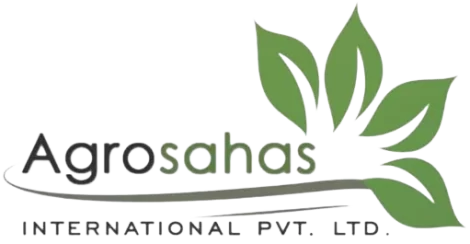Efficient logistics and supply chain management are crucial for the success of the agricultural sector. They ensure that farm products are delivered to markets quickly, safely, and cost-effectively. At Agrosahas International PVT LTD, we understand the significance of streamlined agro-logistics and its impact on both farmers and consumers. Our focus on enhancing supply chain efficiency aims to reduce waste, improve profitability for farmers, and ensure that fresh produce reaches consumers in the best possible condition.
The Importance of Supply Chain Effectiveness in Agro-Logistics
Supply chain effectiveness in agro-logistics refers to the ability to move agricultural products from farms to markets in a manner that maximizes value, minimizes waste, and ensures timely delivery. An effective supply chain is critical in agriculture because it directly impacts the quality and price of products, farmers’ incomes, and consumers’ access to fresh produce.
In the agricultural sector, supply chain effectiveness involves:
- Timely transportation: Ensuring that perishable goods are transported quickly to prevent spoilage.
- Cost efficiency: Reducing transportation and storage costs to keep prices competitive.
- Quality control: Maintaining the quality and safety of products throughout the supply chain.
Agrosahas’ Approach to Improving Supply Chain Efficiency
Agrosahas International PVT LTD is committed to enhancing the efficiency of the agro-logistics supply chain through innovative strategies, technology adoption, and partnerships. Our approach includes the following key elements:
1. Technology Integration
Incorporating technology into logistics is essential for improving supply chain efficiency. Agrosahas has adopted various digital tools and platforms to streamline operations, track shipments, and optimize routes. These technologies help reduce transportation time, lower costs, and ensure that products reach markets in optimal condition.
- Real-Time Tracking: We use GPS and IoT devices to monitor the location and condition of goods during transit. This ensures that any issues, such as delays or temperature fluctuations, can be addressed immediately.
- Data Analytics: By analyzing data from past shipments, we can identify patterns and make informed decisions on route optimization, load management, and inventory control.
2. Efficient Supply Chain Strategy
Efficiency in supply chain strategy focuses on minimizing waste, reducing costs, and maximizing the speed and reliability of product delivery. Agrosahas’ supply chain strategy is centered on the following principles:
- Just-In-Time Delivery: We coordinate with farmers and markets to ensure that products are harvested, packed, and delivered just in time for sale, reducing the need for long-term storage and minimizing spoilage.
- Consolidated Shipping: To reduce transportation costs, we consolidate shipments from multiple farms, optimizing vehicle loads and ensuring full capacity utilization.
- Cold Chain Management: For perishable products, maintaining a cold chain is critical. Agrosahas invests in refrigerated storage and transportation to keep produce fresh throughout the supply chain.

3. Partnerships and Collaborations
Building strong partnerships with logistics providers, market vendors, and technology companies is key to enhancing supply chain efficiency. Agrosahas collaborates with these stakeholders to develop tailored solutions that meet the specific needs of the agricultural sector.
- Third-Party Logistics Providers: We work with specialized logistics companies that understand the unique challenges of transporting agricultural products. These providers offer expertise in handling, storage, and distribution, ensuring that goods are delivered efficiently and safely.
- Market Access: By partnering with local and regional markets, Agrosahas ensures that farmers have direct access to buyers, reducing the number of intermediaries and increasing their profit margins.
4. Training and Capacity Building
At Agrosahas, we believe that empowering farmers with knowledge and skills is essential for improving supply chain efficiency. We offer training programs that cover best practices in harvesting, packing, and transportation, enabling farmers to better manage their produce and reduce post-harvest losses.
- Harvesting Techniques: Proper harvesting methods can significantly impact the quality of produce. We train farmers on the best time to harvest and the correct techniques to minimize damage to crops.
- Packing and Handling: Packing plays a crucial role in preserving product quality during transit. We provide guidelines on how to pack different types of produce to prevent bruising, spoilage, and contamination.
What is Supply Chain Effectiveness in Logistics and Supply Chain Management?
Supply chain effectiveness in logistics and supply chain management refers to the ability to deliver the right products to the right place at the right time while maintaining the desired quality and minimizing costs. In the context of agro-logistics, effectiveness means ensuring that agricultural products are transported from farms to markets efficiently, with minimal waste and maximum value.
An effective supply chain:
- Reduces transit time: Ensures that perishable goods reach their destination quickly, maintaining freshness.
- Minimizes costs: Lowers transportation and storage costs, making products more affordable for consumers and increasing profit margins for farmers.
- Improves reliability: Ensures that products are delivered on time and in good condition, building trust between farmers and buyers.
What is an Efficiency Supply Chain Strategy and Its Main Focus?
An efficiency supply chain strategy is designed to minimize waste, reduce costs, and maximize speed and reliability in the delivery of products. The main focus of this strategy is to streamline operations, optimize resources, and ensure that products are delivered to markets with minimal delays and disruptions.
In the agricultural sector, an efficiency supply chain strategy includes:
- Optimizing routes: Selecting the most efficient transportation routes to reduce travel time and fuel consumption.
- Maximizing load capacity: Ensuring that vehicles are fully loaded to reduce the number of trips and lower transportation costs.
- Reducing storage time: Implementing just-in-time delivery systems to minimize the need for long-term storage and reduce the risk of spoilage.

The Impact of Agrosahas’ Agro-Logistics Initiatives
Agrosahas’ focus on enhancing supply chain efficiency has had a significant positive impact on farmers and the agricultural sector as a whole. By improving logistics and supply chain management, we have helped farmers reduce post-harvest losses, increase their income, and gain better access to markets.
- Increased Profitability: Farmers benefit from reduced transportation and storage costs, allowing them to retain a larger share of the profits from their produce.
- Improved Market Access: By streamlining the supply chain, Agrosahas has enabled farmers to reach new markets, expanding their customer base and increasing sales.
- Reduced Food Waste: Efficient logistics practices have led to a significant reduction in food waste, ensuring that more produce reaches consumers in good condition.
Conclusion
Agrosahas International PVT LTD is committed to revolutionizing agro-logistics by enhancing supply chain efficiency for farmers. Through technology integration, strategic partnerships, and capacity building, we are making it easier for farmers to get their products to market quickly, safely, and cost-effectively. By focusing on supply chain effectiveness and efficiency, Agrosahas is helping to create a more sustainable and profitable agricultural sector, ensuring that farmers can thrive in a competitive market environment.




